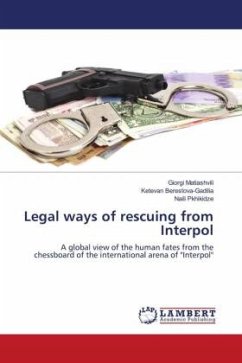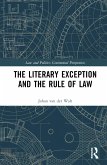This study is devoted to the "Case of Fehriye Erdal". The case is taken as a representative sample and an indicator of how the current system of international cooperation in criminal matters against terrorism is bound to fail under certain circumstances. Considering the fact that the process of extradition still plays an essential role as the most widely-accepted legal tool for nation-states in their fight against international criminality, the significance of the aforementioned case is better grasped. On such basis, this study is focused on the debate revolved around Fehriye Erdal and to this end, especially, the legal proceedings in Belgium and Turkey came under scrutiny and their relation to the institution of extradition closely examined. In this context, it is aimed at drawing the reader's attention to the potentially problematic relationship between the crime of terrorism and the so-called political offence exception to extradition.
Bitte wählen Sie Ihr Anliegen aus.
Rechnungen
Retourenschein anfordern
Bestellstatus
Storno








